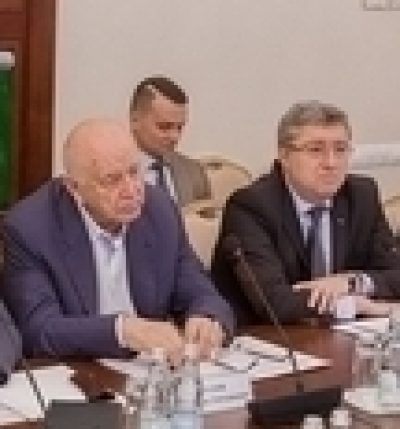A conference on state purchases of medicines and medical equipment from a signal dealer took place at the yesterday’s meeting at the Union of Industrialists and Entrepreneurs. The discussion brought together members of the RSPP, the Chamber of Commerce, and heads of pharmaceutical companies.
President of the RSPP, Alexandr Shokhin gave his welcoming speech. He noted that the agenda of the State is not only to stimulate competition on the pharmaceutical market, but mostly to address patient’s interests by providing a quality and price stability for medicines.
ARPM Director General, Victor Dmitriev, in his speech said that the current changes at the pharmaceutical market are significant not only for companies, but also for the population of the country. “We have a well formed market, that generally supplies the demand of people and the health care system as a whole. A significant role on the market is played by the regulators, therefore it is delightful to say that we are having a productive dialogue with the state authorities. However, any changes to the working system may cause errors and risk the whole drug provision of the country,” said Mr. Dmitriev.
Mr. Dmitirev noted some positive results of the strategy PHARMA 2020, which was designed to improve the domestic pharmaceutical industry, also through localization of foreign producers in Russia. For the last 6 years the value of foreign investments to the Russian pharmaceutical industry reached over 1 billion euros. Such companies as Takeda, AstraZeneca, Novo Nordisk, Teva, and Novartis have build pharmaceutical plants in Russia. Also Sanofi-Aventis and Abbott have invested in production facilities in Russia. The value of the Russian investment is also high. Thus Pertovax, PharmEco, Geropharm, Polysan and other companies made investments to the PHARMA 2020 program. “All of these are not state investment,” noted Mr. Dmitriev.
Even though, the business is looking forward to implement the PHARMA 2020 strategy, the new project with a single dealer of immunobiological drugs, as well as medicines agains HIV, and insulins makes investors reevaluate their plans. Producers are concerned that the decisions on state purchases from a single dealer are made without consulting with the market experts and in many cases contradict the adopted state policies.
A single dealer is a monopoly with all the consequences of it. The companies, that produce those drugs will end up with a disadvantage. Geropharm, which just finished construction of the insulin plant of the full cycle and Sanofi-Aventis, which was going to start export from the Russian plant abroad, wold have to change their plans due to the new perspective policy. Also, a dealer monopoly brings some risks to consumers, such as price increase, low quality and lack of the replacement of the drug due if production stops.
“A state monopoly could lead to a much worse conditions than a monopoly of a private company,” noted Mr. Dmitriev.
Mr. Dmitriev’s opinion was supported by other members of the meeting. Director of economic security of Geropharm, Andrey Ahantev. Mr. Ahantev noted that purchasing from one distributer according to Federal Law 44 should be allowed only under exceptional circumstances. This method could be used tp purchase medicines that have no analog in Russia. Acting director of the Association of International Pharmaceutical Manufacturers, Vladimir Shipkov noted that investors and producers are waiting for a predictable and transparent mechanism of market regulation.
As the result of the meeting it was decided to inform the Government on the existing capacities of the domestic pharmaceutical producers to make insulins. Today productions of Geropharm, Sanofi-Aventis and Novo Nordinsk that are located in Russia are capable of producing insulins over the needed amount for the healthcare system. Therefore, creation of additional productions is unnecessary. The funds, that were allocated for the insulin factory in Pushino would be more effective in other social areas, according to members of the conference.
Also it was decided to address to the competitive authorities to establish criteria for a single supplier. It is important to determine the rules of state regulation and control over suppliers. Changes in the legislation should not negatively effect the quality of medical products.

